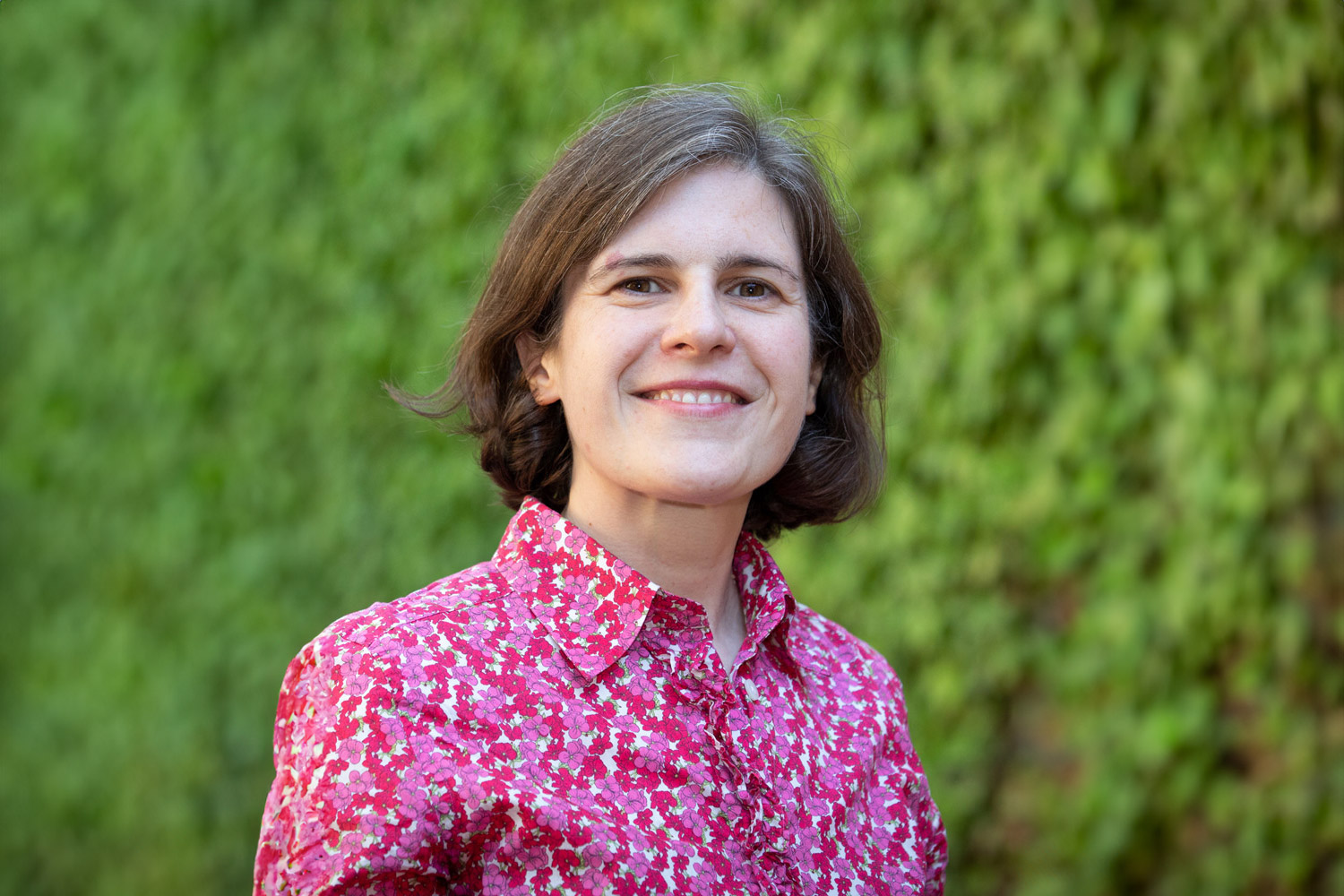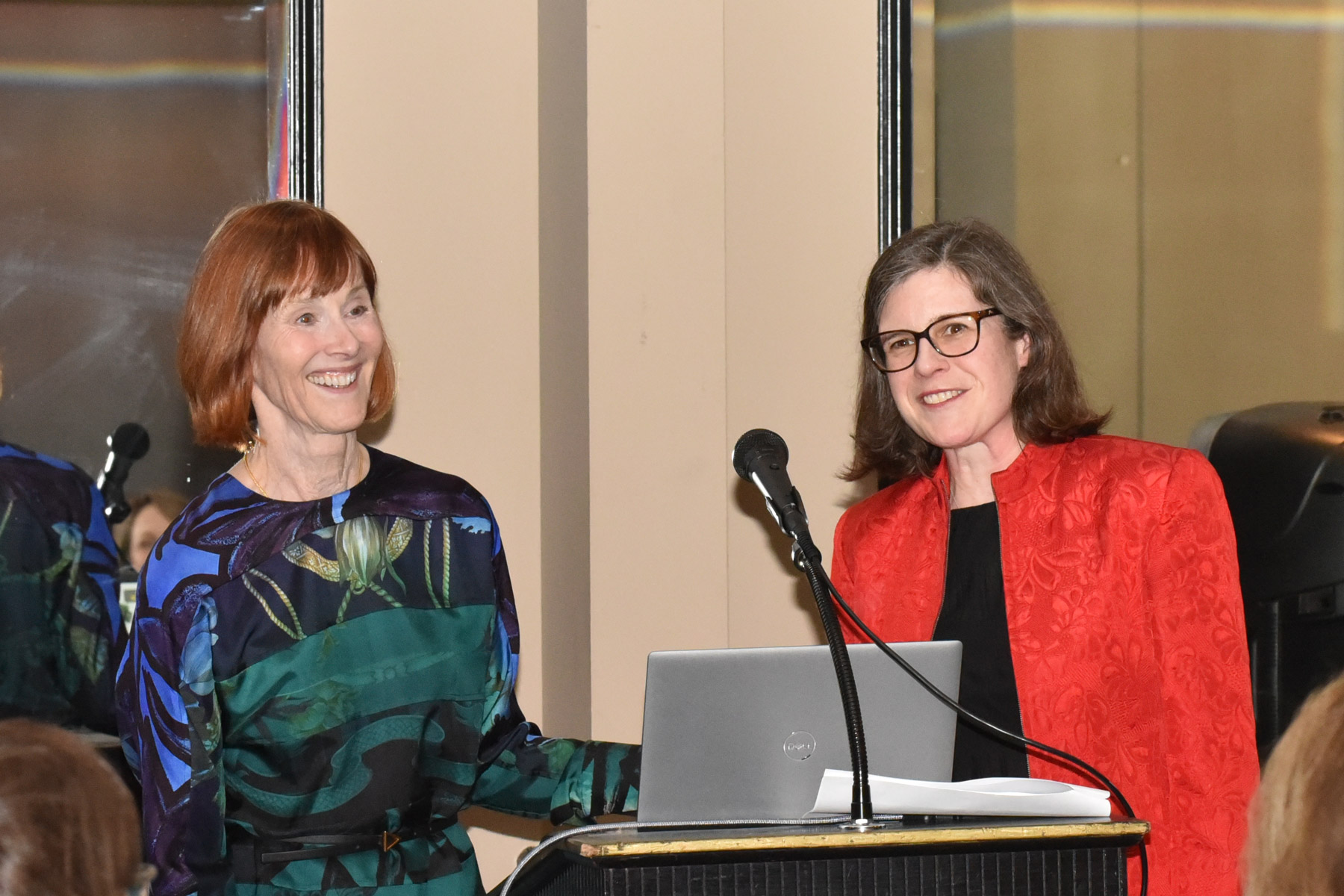Dr. Marlys Fassett Receives the 2024 DF Bristol Myers Squibb Psoriasis Research Award
Exploring the potential of targeting IL-31+ resident memory T cells to treat psoriasis
June 2024

Marlys Fassett, MD, PhD, has received the 2024 DF Bristol Myers Squibb Psoriasis Research Award (BMSRA) from the Dermatology Foundation. Dr. Fassett is the second recipient of this prestigious award for extraordinary mid-career investigators. The award comes with $100,000 funding each year for three years to support her research into the role the cytokine IL-31 plays in pro-inflammatory diseases, including psoriasis.
“I’ve never been so surprised and relieved to win an award,” said Dr. Fassett. “The Foundation’s support is so important for researchers, especially for a mid-career investigator like me.”
Running a relatively new lab can be a budgetary struggle for any faculty, particularly those in California, where unionized salaries for students and technicians have increased dramatically while NIH funding has remained static. The BMSRA takes much of the financial pressure off and allows Dr. Fassett to focus on what she does best—research.
“This award, with multi-year funding, makes a huge difference in our ability to support and train junior scientists,” she said. “I greatly appreciate the large community of dermatologists who have made substantial donations to promote basic and translational research.”
“This award, with multi-year funding, makes a huge difference in our ability to support and train junior scientists,” she said. “I greatly appreciate the large community of dermatologists who have made substantial donations to promote basic and translational research.”

Dr. Janet Fairley (left) and Dr. Marlys Fassett share a laugh during the Honorary Awards ceremony.
Dr. Fassett is associate professor of dermatology at the University of California, San Francisco. She graduated from the Medical Scientist Training Program at Harvard Medical School with her PhD in immunology (2009) and MD (2011). She completed her residency at UCSF and pursued a postdoctoral fellowship in the labs of Dr. Mark Ansel (molecular immunology) and Dr. Allan Basbaum (neuroscience). She is a skin T cell immunologist whose core research involves the neuroimmunology of itching, understanding how the cells of the skin immune system communicate with sensory neurons that mediate itch and pain, and how those neurons modulate the skin’s immune cells. Dr. Fassett came to study psoriasis via her interest in itch diseases.
“At the start of my research career, I was interested in the field’s big, seemingly unsolvable questions of the last ten years.”
“At the start of my research career, I was interested in the field’s big, seemingly unsolvable questions of the last ten years.”
Her postdoc culminated in the discovery that IL-31 affects immunoregulation in skin via itch sensory neurons. Dr. Fassett received a three-year DF Physician Scientist Career Development Award (2017-2019) to complete this work. Based on preliminary data from experiments she could perform because of this award, she won a K08 grant from the National Institute of Arthritis and Musculoskeletal and Skin Diseases (NIAMS). In 2021, she was recruited for her current position.
Her research has expanded the understanding of the role the cytokine IL-31 plays in atopic dermatitis (Fassett et al. 2023), the activation of sensory neurons in the skin, and itch. In addition to publishing in journals, Dr. Fassett has written about her work on IL-31 and itch in the popular press and has been profiled by the BBC.
“My interest in itch has led me to research the functional biology of IL-31 and the ways it behaves beyond itch and neurogenic inflammation,” said Dr. Fassett. “That’s where the BMSPA proposal comes in.”
While IL-31 is associated with itch disorders, like atopic dermatitis, it also plays a role in other inflammatory diseases, including psoriasis. Her lab discovered a transcriptional enhancer encoded near the IL31 gene in human T cells, showing that these immune cells can be induced to produce more IL-31. Deleting the murine Il31 gene reduced skin inflammation in a psoriasis model. This showed that IL-31 plays a pro-inflammatory role in psoriasis. Dr. Fassett will use her award funding to ask how IL-31 influences this inflammation in psoriasis. This work partially aims to understand how to target IL-31+ resident memory T cells as a therapeutic approach to psoriasis.
Becoming a dermatologist
Dr. Fassett was the first in her family to go to medical school. Her childhood interest in botany later morphed into a passion for human biology, particularly immunology.
“I’ve been doing immunology research since college and teaching immunology since graduate school,” said Dr. Fassett. “There are obvious clinical applications for MD and PhD immunologists, like rheumatology or immuno-oncology. But dermatology made sense to me as a specialty when I learned that there are more T cells in the skin than anywhere else.”
“There are obvious clinical applications for MD and PhD immunologists, like rheumatology or immuno-oncology. But dermatology made sense to me as a specialty when I learned that there are more T cells in the skin than anywhere else.”
Dr. Fassett works in a clinic one half day each week and supervises residents in one of the teaching clinics. She collaborates with Dr. Tim Berger, retired from position as professor of clinical dermatology, UCSF School of Medicine Department of Dermatology, and Dr. Sarina Elmariah, assistant professor in dermatology, Massachusetts General Hospital, Harvard Medical School, at a complex med-derm clinic focused on severe itchy dermatosis.
“Tim Berger has been my mentor for a long time and turned me onto IL-31 near the beginning of my postdoc,” said Dr. Fassett. “Tim and I have many things in common besides dermatology. He has an enduring interest in skin immunology, a huge patient population of chronically itchy people, and an interest in supporting the career development of physician scientists.” Dr. Berger received the 2023 DF Lifetime Career Educator Award for this work. “We made a natural match in terms of mentor-mentee. We both love gardening, which also gives us a chance to talk about itching and dermatology.”
Long-standing support
In addition to her DF Career Development Award, Dr. Fassett received a 2023 DF Diversity Research Supplement Award and a DF Dermatologist Investigator Research Fellowship (2015–2016).
“From the early days of my career, the Foundation felt like an organization built for people like us. It was an intellectual and financial home for early physician-scientists in dermatology.”
“The Foundation’s support has played a huge role in my career,” said Dr. Fassett. “The transition from residency to being a postdoc and then an investigator with my own lab came with scientific and financial uncertainty. Our department chair is intellectually and organizationally supportive of physician-scientist careers, but we need a way to supplement our salaries so we can support ourselves and do important experiments. From the early days of my career, the Foundation felt like an organization built for people like us. It was an intellectual and financial home for early physician scientists in dermatology. Virtually all my cohort who finished medical school are still in scientific dermatology and have received support from the Foundation. When I went to San Diego in March to receive the BMS award, the audience was filled with colleagues funded by Foundation awards.”
Suggestions for the evolution of research funding
Dr. Fassett has noticed a shift in the past decade toward research that has clinical applicability. Journals are asking for more research papers on human subjects and the translational aspects of basic research. Ideally, she knows her T cell immunological research would benefit from having access to specimens from clinical trials or clinical research studies.
“I’d love to have skin biopsies or RNA sequencing tissue from clinical trial subjects to see if what we see in mice bears out in patients.”
“I’d love to have skin biopsies or RNA sequencing tissue from clinical trial subjects to see if what we see in mice bears out in patients,” said Dr. Fassett. “Collaborative grants might make sense, connecting researchers who run clinical trials and translational research with those performing basic research like me.
“Getting to choose research questions, design experiments, and interpret results is a huge luxury,” said Dr. Fassett. “It’s fun, it’s interesting, and it’s important for the long-term future of medicine and patient care. I feel very lucky to be in this position.”

